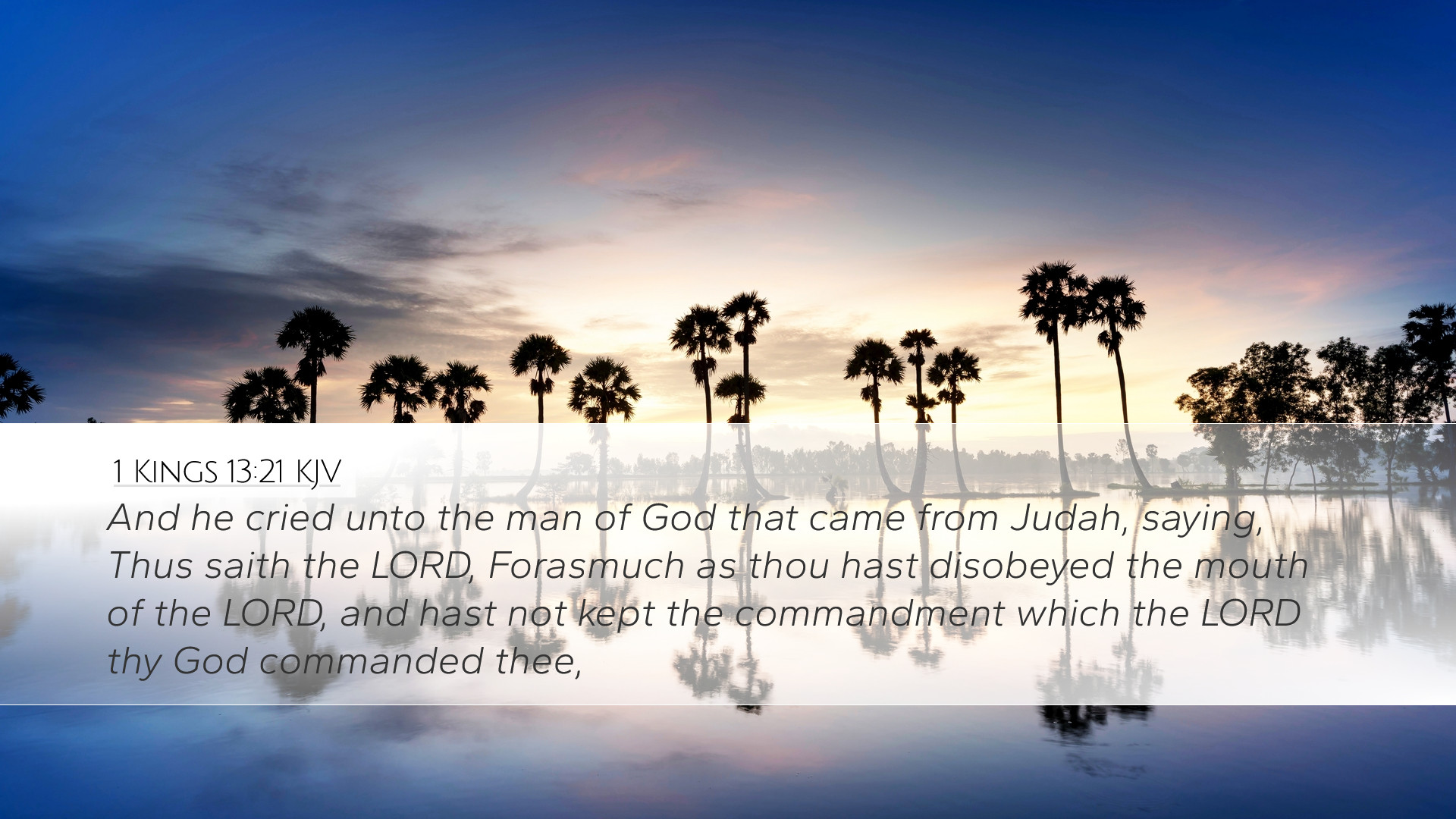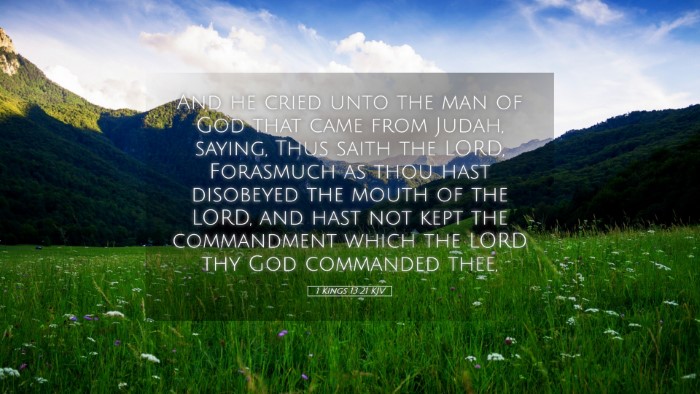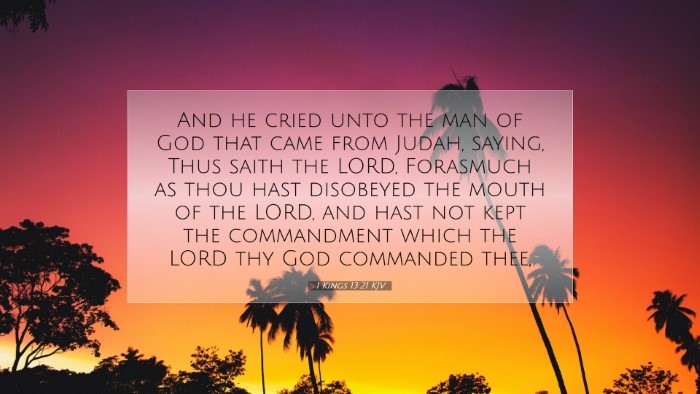Commentary on 1 Kings 13:21
The verse in focus, 1 Kings 13:21, reads:
"And he cried unto the man of God that came from Judah, saying, Thus saith the Lord, Forasmuch as thou hast disobeyed the mouth of the Lord, and hast not kept the commandment which the Lord thy God commanded thee."
This passage encapsulates a profound moment in the narrative of the divided kingdom of Israel, serving as a rich source for theological reflection and moral instruction. Below is a synthesis of insights drawn from several public domain commentaries, providing a comprehensive examination of the text.
Contextual Background
This passage occurs within the larger narrative found in 1 Kings 13, detailing the journey of a prophet from Judah to Bethel. The historical context involves King Jeroboam, who had established idol worship under the influence of corruption and deviation from the covenant practices of Israel. The prophet's mission was to deliver God’s warning against these sinful practices, highlighting the tensions between divine command and human obedience.
Divine Authority and Human Disobedience
Matthew Henry emphasizes the weight of divine authority that rests on the commands issued by God. In this instance, the man of God had received clear instructions: he was to deliver God's message without deviating or engaging in worldly practices. The disobedience displayed here signifies a grave misstep, where the initial obedience is undermined by subsequent actions leading away from God's directive.
The Role of the Prophets
Albert Barnes points out that the prophets were tasked with maintaining the spiritual integrity of Israel. Their role was heavily dependent on their fidelity to God's word. This illustrates the principle of accountability within the prophetic ministry—a theme prevalent throughout the Scriptures. As how the prophet initially followed God’s plan, he later deviated, showing a painful reality of human frailty.
The Consequences of Disobedience
Adam Clarke elaborates on the serious implications of disobedience to God's command. He highlights that the message from the Lord communicated by the prophet included not just divine instruction but also a warning against the dire consequences that follow unfaithfulness. The prophet's failure marks a critical turning point in his ministry and lays the foundation for God’s disciplinary action. This serves as a lesson that even those who are called and anointed can stray from the path if they do not remain vigilant.
Moral Implications for Today
From a contemporary perspective, this narrative is a sobering reminder for pastors, theologians, and lay ministers regarding the importance of obedience to God's word. The call to the prophetic office carries the accompanying responsibility to hear and act upon God's directives. Failure to do so not only endangers the individual's spiritual life but can also affect the broader community.
Lessons on Leadership
- Accountability: Leaders must remain accountable to the commands of God.
- Discernment: Spiritual leaders should not only proclaim God’s message but also need discernment to navigate the complexities of ministry.
- Integrity: Maintaining integrity in ministry is critical—both in delivering God’s message and in personal conduct.
Conclusion
1 Kings 13:21 serves as a powerful reminder of the tension between divine calling and human weakness. It underscores the importance of adherence to God’s instructions, warning against the subtle temptations that may lead one astray. The insights provided through the public domain commentaries, specifically from Matthew Henry, Albert Barnes, and Adam Clarke, collectively convey a message of necessity for vigilance, humility, and a steadfast commitment to the truth of God's word. In navigating the challenges of ministry today, may all who engage with this text receive guidance and strength to faithfully fulfill their calling while ever seeking to remain aligned with God's purposes.


